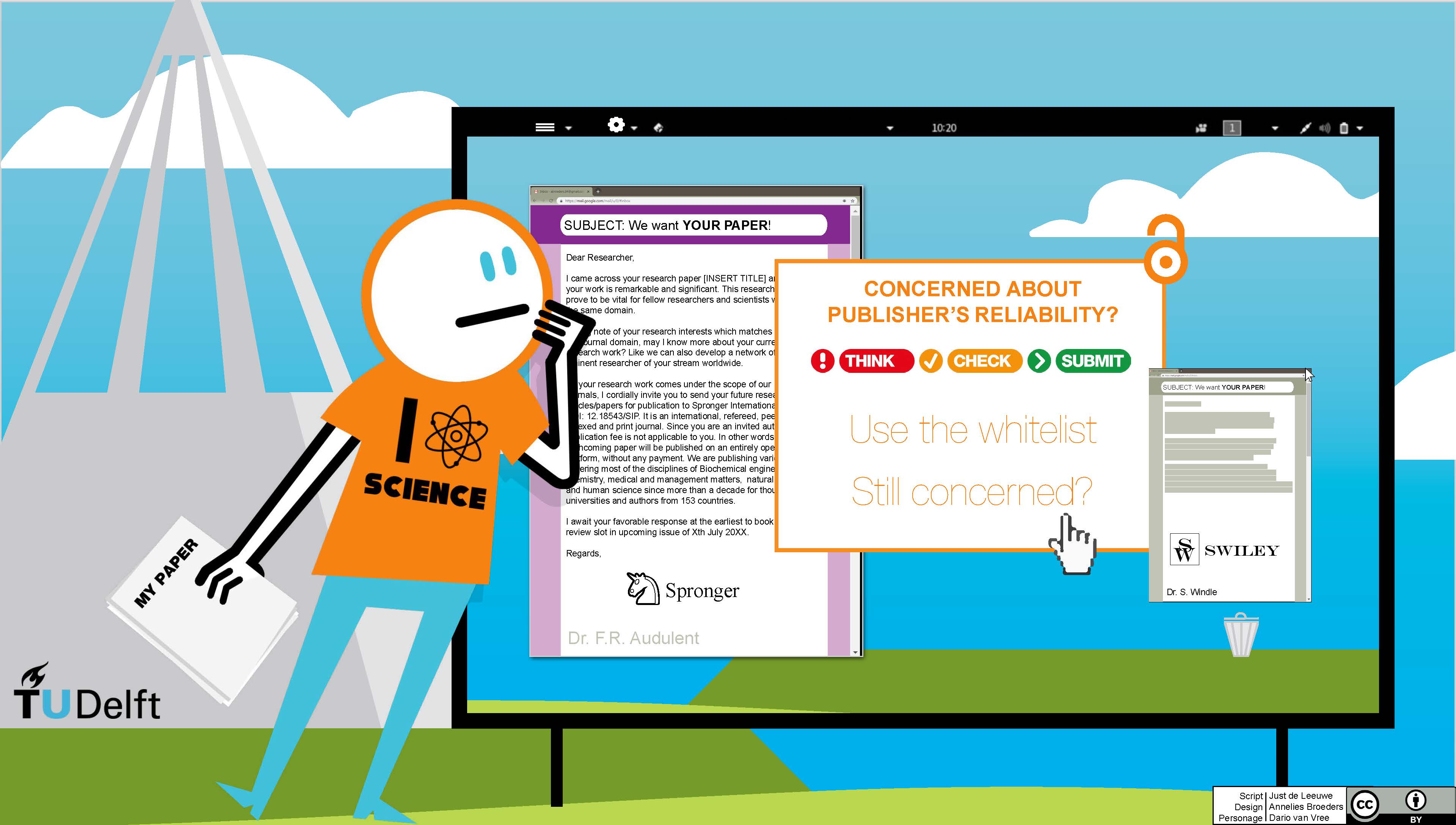About questionable publishers
Predatory Publishers
Publishers that have a questionable reputation in the academic world misuse the term publisher and the open access business model. They offer to publish your article in an open access journal upon payment of an open access fee or article processing charge (APC). However, they do not provide proper editorial services, indexing or a peer review process in exchange for this payment. These publishers may also ask you to act as an editor for a journal in order to increase the credibility of their titles. This may lead to your name being linked with that of the untrustworthy publisher in question, which may in turn have a negative impact on your reputation in the scientific world. You should bear in mind that a publisher with a good academic reputation would never ask you directly to publish with them. Your publication will only be accepted following an assessment of its quality.
There is currently no public and transparent index of publishers with dubious reputations, but there is a valuable guide entitled Predatory and Questionable Publishing Practices.
The Directory of Open Access Journals (DOAJ) contains more than 20,000 peer-reviewed open access journals that meet the criteria of the independent non-profit organization DOAJ. For questions about open access journals, please contact Ask Your Library.
Think, Check Submit
A large international consortium of both publishers and open access initiatives has launched the campaign Think, Check, Submit. They developed a check list to help researchers assess the quality of a journal.
Vanity publishers
There are some questionable publishers that actively approach students with unsolicited offers, known as vanity publishers. Students are usually asked whether they would like to publish their Master’s thesis in print form, with the publisher concerned ultimately aiming to benefit financially from this. These publishers actively approach TU Delft students after they have uploaded their theses onto the TU Delft Repository.
TU Delft advises students not to work with these publishers. Always check a publisher’s reputation and carefully check the conditions of any agreement. The most important vanity publisher is Omniscriptum, that operates under a number of names or imprints, including Scholars’ Press and LAP Lambert. The latter is especially active in sending many TU Delft students soliciting e-mails, such as the one below:
Dear Mr. XXX,
I am David Johnson from the editorial team of Lambert Academic Publishing.
I’m getting in touch with you today concerning an interesting work from 2014 which I found at the Delft University of Technology.
Is it correct that you authored the work entitled “Xxxxx xxxx”?
A short confirmation would be greatly appreciated. I believe this particular topic could be of interest to a wider audience and we would be glad to consider publishing it.
Should the commercialisation of your work as printed book meet your interest, kindly let me know. I will be glad to provide you with further details in an electronic brochure.
I am looking forward to hearing from you, Mr. XXX.
Thank you in advance.
Best regards,
David Johnson
Acquisition Editor
LAP LAMBERT Academic Publishing is a trademark of: OmniScriptum GmbH & Co. KG
Heinrich-Böcking-Str. 6-8, 66121, Saarbrücken, Germany
If you have any questions or doubts, please discuss with your advisor or contact us at Ask Your Library
